A new chapter in the development of agricultural education in Syunik province has begun with the introduction of the dual education system. This model, which combines theoretical training with practical work, enables students to gain real experience in their chosen field by working directly with partner organizations.
“Modernizing Vocational Education and Training in Agriculture in Armenia” (MAVETA) project implemented in Syunik is part of the Resilient Syunik Team Europe initiative, which is the joint undertaking of the EU, the European Investment Bank, the European Bank for Reconstruction and Development, Austria, the Czech Republic, Estonia, Finland, France, Germany, Lithuania, the Netherlands, Poland, Sweden and Switzerland. The key goal of the initiative is to promote the sustainable socio-economic development of Syunik.
Professional experience starting from student years
The MAVETA project brings together educational institutions, employers, and government bodies to strengthen vocational education in the agricultural sector. A dual education system has been introduced within the framework of the project, which allows students to not only receive theoretical knowledge, but also gain real work experience on a contractual basis and with pay.
The MAVETA project is funded by a broad coalition of international and local organizations led by the Swiss Agency for Development and Cooperation (SDC), including the Austrian Development Cooperation (ADC), the German Ministry for Economic Cooperation and Development (BMZ), the Government of Armenia, HEKS/EPER NGO, the Izmirlian Foundation, the Strategic Development Agency (SDA) NGO and Vanand Agro CJSC.
The project’s implementing partners are the GIZ and HEKS/EPER with the involvement of SDA and the School of Agricultural, Forest and Food Sciences at the Bern University of Applied Sciences (HAFL).
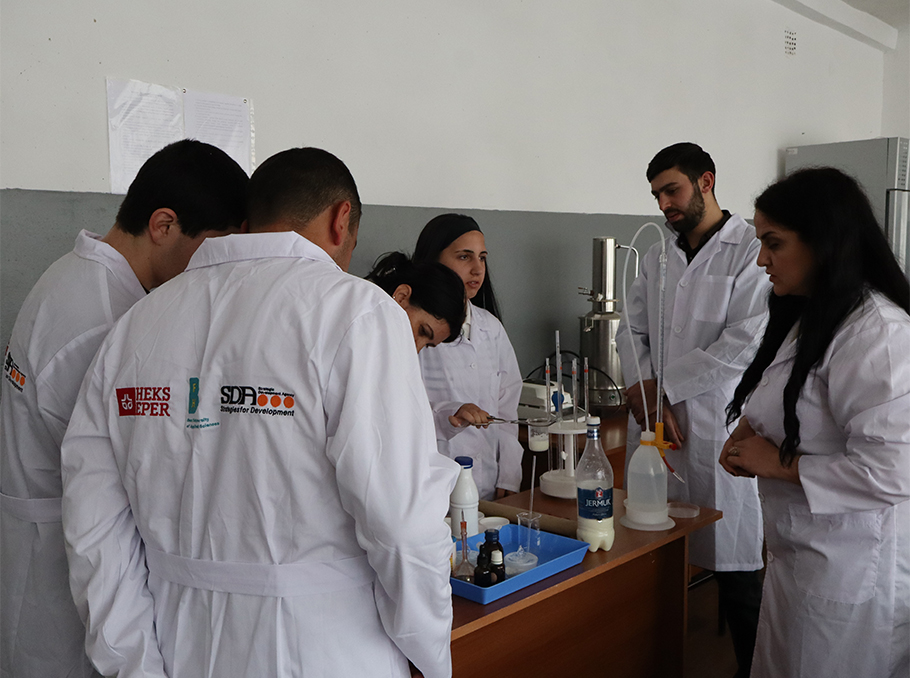
Photo: Mediamax
Currently, it is being implemented in six specialties, five of which have already been introduced - milk and dairy technology, veterinary medicine, farm management, dairy farm organization, agricultural mechanization, and horticulture.
In Syunik, MAVETA is seen as an innovative solution to challenges in the agricultural sector. The Goris State Agricultural College and the Sisian branch of the National Agrarian University of Armenia are the beneficiaries. Out of 352 students enrolled in the dual system, 115 are from the Goris College, which has a total student body of 250. Currently, 75 students are employed under contract with 25 local employers.
The dual education model is raising the quality of education, improving youth employment rates, and driving modernisation in agriculture. “The MAVETA project connects students with the real field of work. They graduate as experienced specialists,” noted Lilit Hovhannisyan, representative of the “Strategic Development Agency” NGO and MAVETA project manager.
“In Switzerland, we have a long tradition of vocational education, particularly in agriculture, and we are pleased to share this experience through close collaboration with our Armenian partners. MAVETA is not about applying a fixed model, but about working together to find locally appropriate solutions that can support young people and strengthen regional development,” said Ursula Läubli, Deputy Head of Mission of the Embassy of Switzerland in Armenia, Deputy Regional Director of Swiss Cooperation South Caucasus.
From classroom to work: The results are already visible
MAVETA is more than just an educational initiative – it’s a catalyst for economic development. The project directly addresses a long-standing issue in Armenia’s labour market – the critical shortage of mid-level specialists. Professions such as veterinarians, dairy technologists, and tractor operators are in high demand, yet the traditional education system fails to prepare enough specialists. Dual education is one of the best ways to fill this gap.
“We also have large farms in Syunik that require skilled veterinarians. It is precisely in response to these needs that when we started cooperating with educational institutions in the region, we introduced the “Milk and Dairy Technology” specialty. The demand for it is high. In 2016, when the sector was just emerging, employers were even ready to invite specialists from Yerevan and offer high salaries just to secure qualified staff. Today, many of the young professionals working for local employers in Syunik are graduates of local colleges,” said the project manager.
Practical experience is the basis of dual education. Students spend at least 50–60% of their educational program working with an employer. This not only reinforces their theoretical knowledge but also provides valuable early work experience.
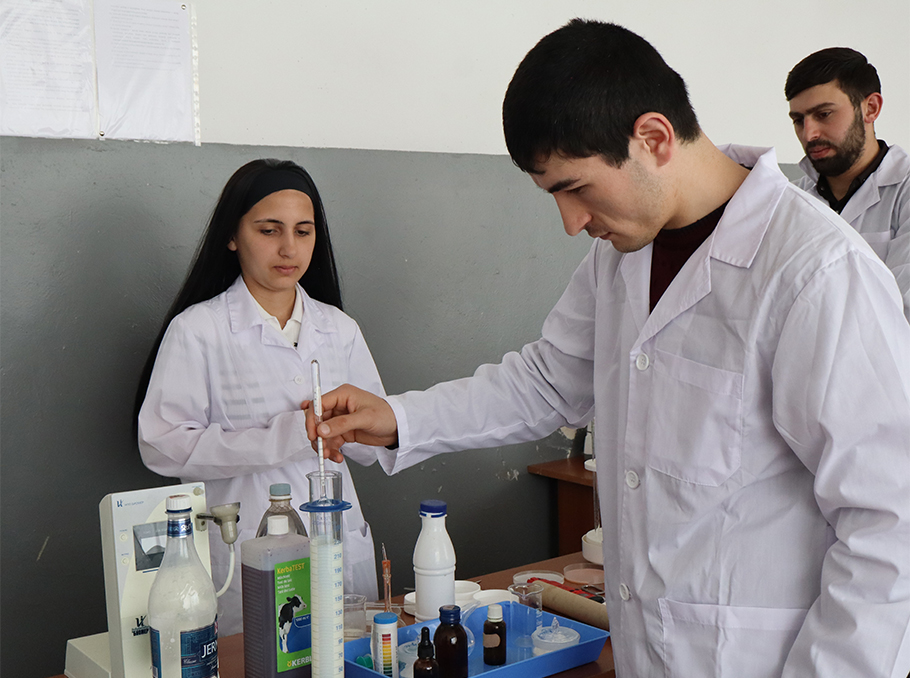 Martun Minasyan
Martun MinasyanPhoto: Mediamax
Martun Minasyan, a third-year student at Goris Agricultural College, got an internship at the Elola Company as a milk processing specialist through the dual education program. “At first, I studied theory only in the classroom, then I started practical hours at the factory. When they saw I could manage the work, they hired me. The practical experience changed my ideas,” Martun said.
“Now the student works with us five days a week, under the supervision of a mentor, and receives a salary. It’s a serious responsibility - both for him and for us. But today we already have a student who cannot imagine himself working anywhere else. This is the best indicator,” said Harutyun Tsatryan, director of Elola.
This company employs dozens of people, most of whom are graduates of the Goris Agricultural College. “It is very difficult to find qualified specialists in the labour market. Most are middle-aged or older, particularly veterinarians, many of whom are already over 60. If we cannot attract young people today by motivating them and offering the right educational system, we will face a serious workforce crisis. In that case, we’ll be forced to bring in services from other regions or countries, which is time-consuming, costly and often ineffective,” said the company director.
This process not only deepens students’ professional knowledge but also familiarises them with the realities of the workplace. They take part in production processes, follow hygiene standards, and carry out responsibilities alongside regular staff.
Partnership with employers: A new level of trust and commitment
The success of dual education depends heavily on the active involvement of employers. In Syunik, several companies are stepping up - not only offering students valuable hands-on experience, but also investing in their long-term development.
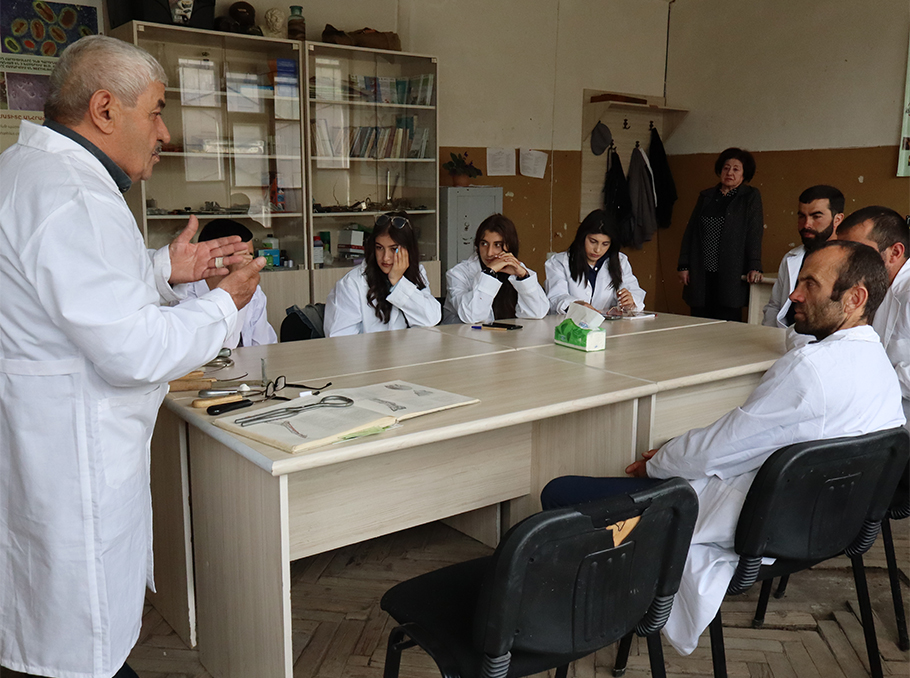
Photo: Mediamax
“The employer is our partner not only in the training process, but also in shaping the educational environment. We develop curricula with them and identify the skills in demand. On-going dialogue and close cooperation with employers ensure that students receive an education grounded in current, real-world needs,” emphasized Hasmik Khachunts, head of the dual system of the MAVETA project.
Today, large and medium-sized agricultural farms, processing companies, veterinary clinics, and agricultural producers have joined the project. This partnership not only equips specialists with skills aligned to labour market needs but also encourages young people to build their futures within the region.
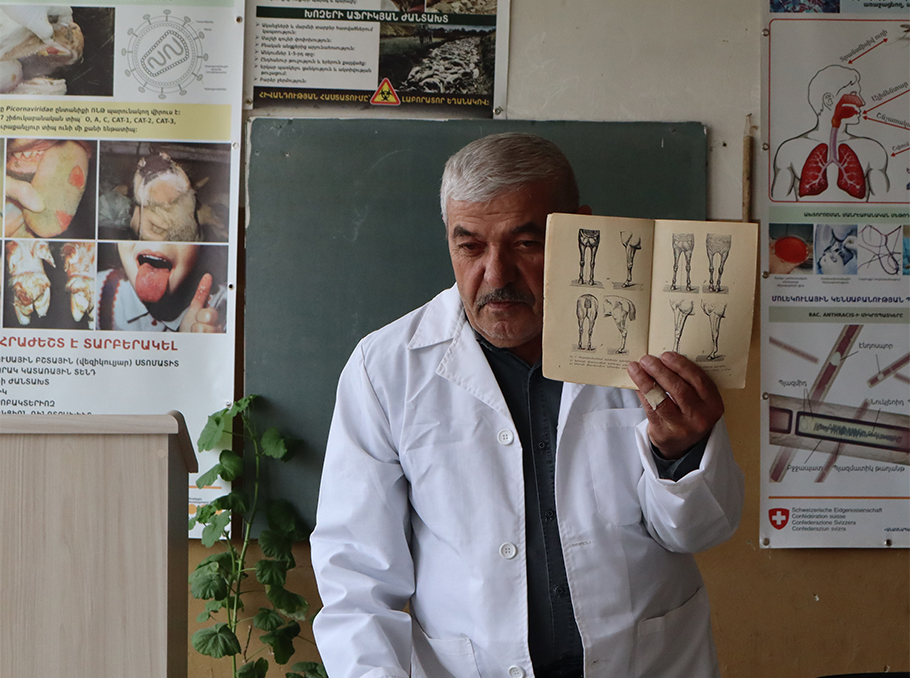 Artavazd Hayrapetyan
Artavazd Hayrapetyan Photo: Mediamax
According to Artavazd Hayrapetyan, a lecturer and veterinary specialist with 58 years of experience at Goris State Agricultural College, true learning comes through hands-on experience. “When I teach hoof diseases, showing a picture or tool isn’t enough. But if a student picks up the tool and cleans a hoof even once, that experience stays with them. This is the advantage of dual education. The student learns the theory in class, but then goes to the field, interacts with the animal, and uses the tools in real-life settings. We cover the theory here, but the practical operations happen at the employer’s site. That’s what makes the training truly effective,” he noted.
Anna Torozyan, Acting Director of Goris State Agricultural College, said the introduction of the dual education system - along with state support measures such as transportation cost compensation for rural students - has led to a noticeable increase in applications. These incentives benefit students pursuing specialties like veterinary medicine, farm management, agricultural mechanization, and technical support for agricultural operations.
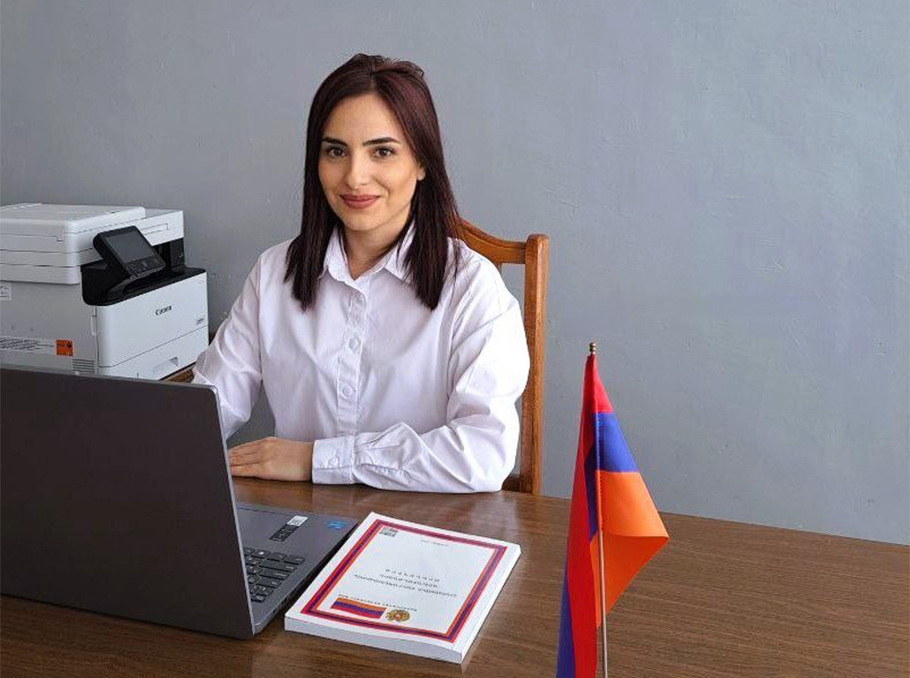 Anna Torozyan
Anna TorozyanPhoto: Mediamax
“MAVETA enables us to align the educational process with labour market demands. Our goal is to bring secondary vocational education in line with international standards and to develop modern agricultural training tailored to the needs of our region,” she said.
Institutional development of colleges: A solid foundation for the future
The effectiveness of the dual education system is closely tied to the strengthening of educational institutions, especially colleges. As part of the project, Goris State Agricultural College has been equipped with modern laboratory and technical resources, ensuring that the learning environment meets today’s educational and industry standards.
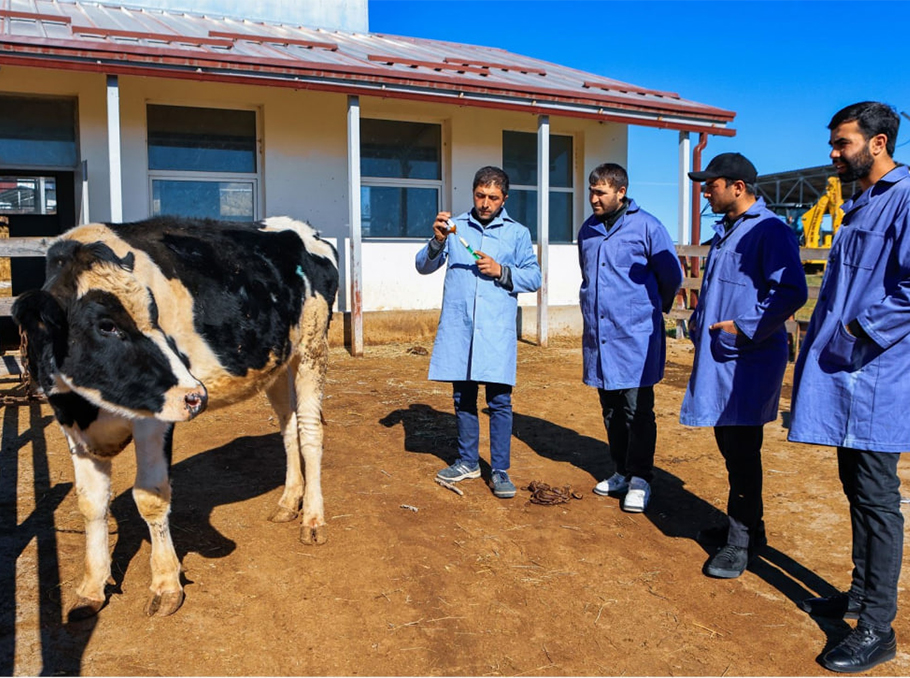
Photo: Mediamax
New laboratories for microbiology, milk processing, and refrigeration have been established. Special attention has also been paid to the student mobility issue: a new minibus has been provided, ensuring safe and comfortable transportation of students from villages to partner organizations.
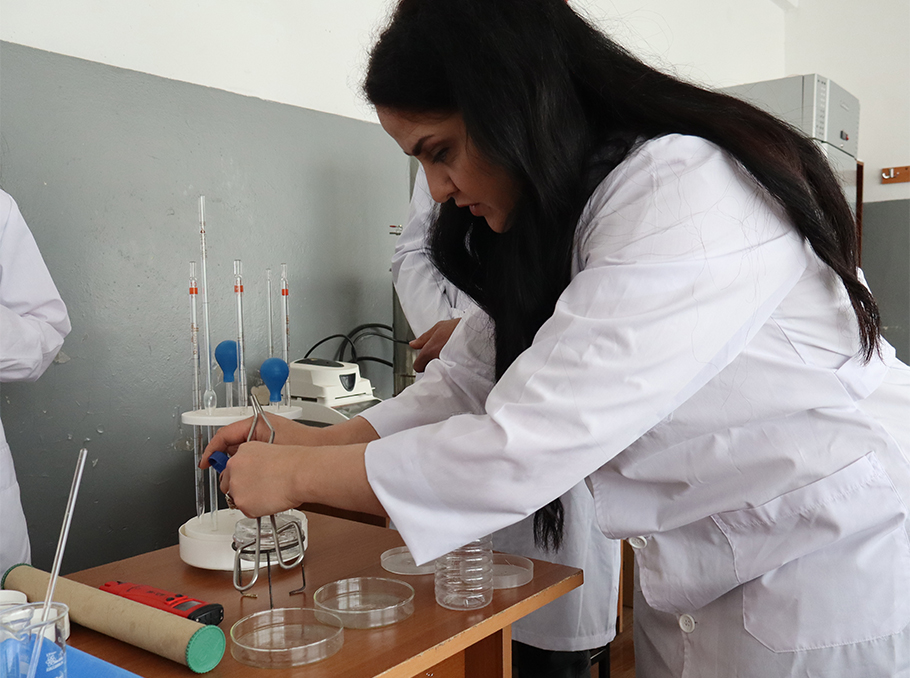
Photo: Mediamax
MAVETA’s comprehensive approach extends beyond students to include lecturers and the college management team. Regular trainings are organized to enhance both professional expertise and skills. Lecturers have taken part in specialized courses in veterinary medicine, dairy technology, and farm management. In addition, the project has offered training in conflict management, working with vulnerable groups, and student career guidance. An experience exchange visit to Switzerland was organized in the spring.
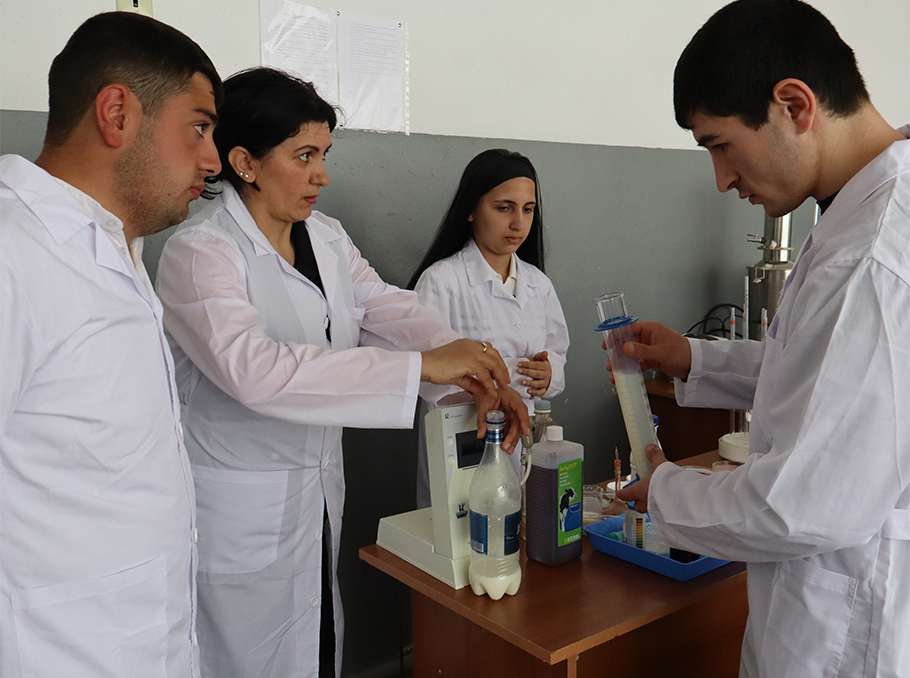
Photo: Mediamax
“We at GIZ are trying to integrate international best practices into the vocational and educational landscape of Armenia, and MAVETA provides an excellent opportunity to do so. The dual education system empowers young people by providing them with both theoretical knowledge and practical skills that are directly applicable in the workplace. It not only increases their employability but also strengthens local agricultural systems by responding to real labor market demands,” said Svenja Weyrauch, Project Manager at GIZ. “A significant milestone in this direction has been GIZ’s contribution to the development of a fundamentally new VET law. This pioneering legislation lays the foundation for a modernized vocational education system in Armenia-one that is firmly rooted in work-based learning and the principles of dual VET. It opens new doors for closer cooperation between education and the private sector, ensuring that vocational training is both relevant and future-ready.”
The multifaceted advantages of dual education
Hasmik Khachunts, head of the dual education system, emphasizes that the system breaks the stereotype that college graduates have no experience. By the time they graduate, students already have a work contract, work experience, and a salary. They can enter the labour market immediately, without the need for an additional probationary period. She also emphasized the importance of tailoring employer partnerships to the needs of individual students. “We strive to match students with employers close to their place of residence, but we also ensure job rotation so they can experience different workplaces and practical settings. This approach broadens their experience and deepens their professional engagement,” she stressed.
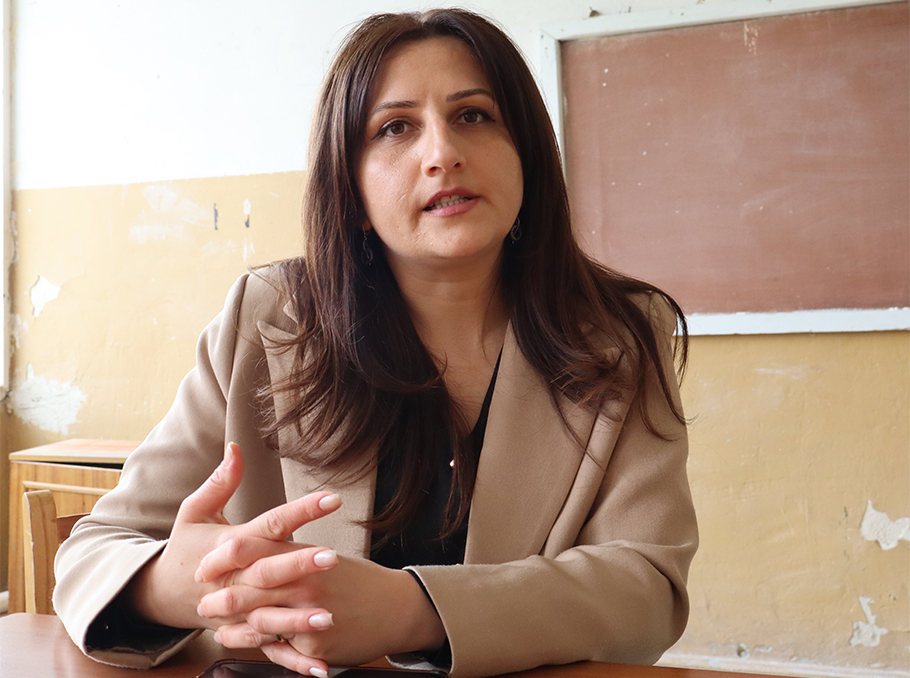 Hasmik Khachunts
Hasmik KhachuntsPhoto: Mediamax
Another important component of the project is social support for students. At Goris State Agricultural College, for instance, students from vulnerable groups - including those with disabilities - have benefited from tuition reimbursement made possible through MAVETA’s support.
“MAVETA is not just a project, it is a redefinition of education, work, and community, especially in rural areas. There is still much to be done in the agricultural sector. But if today there are people who see their work right in Syunik, in their village, in this very profession, then the project has already achieved its mission,” added Lilit Hovhannisyan, the program manager.
Anahit Baghdasaryan
“The Resilient Syunik Team Europe” initiative is the joint undertaking of the European Union, the European Investment Bank, the European Bank for Reconstruction and Development, EU Member states - Austria, Czechia, Estonia, Finland, France, Germany, Lithuania, the Netherlands, Poland, Sweden, and Switzerland also joining as an external partner. The initiative aims to contribute to the sustainable socioeconomic development of the Syunik region.
This article was published with the financial support of the European Union. Its content is the sole responsibility of Mediamax and does not necessarily reflect the views of the European Union.
















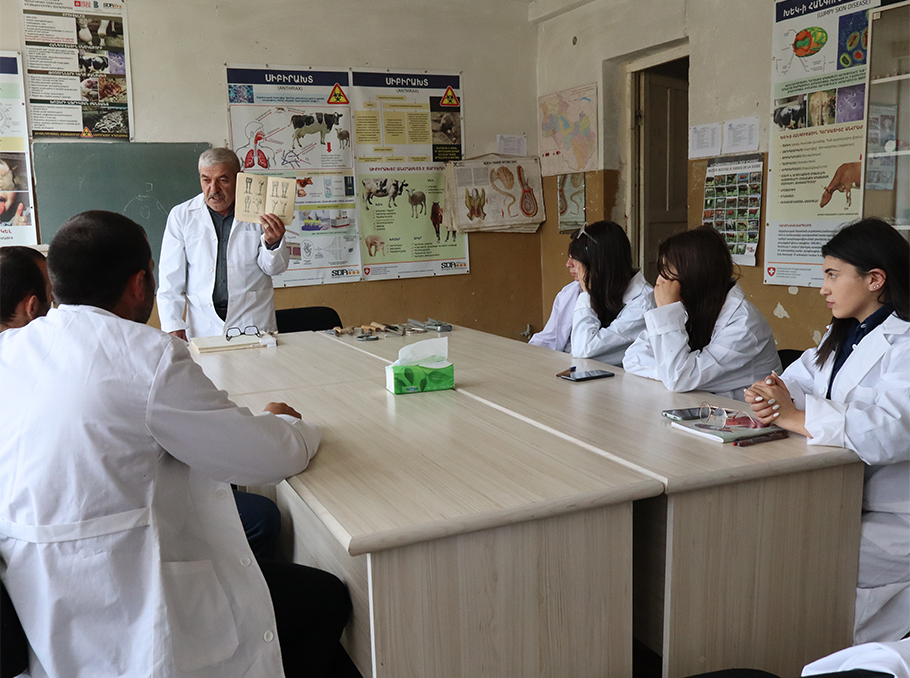
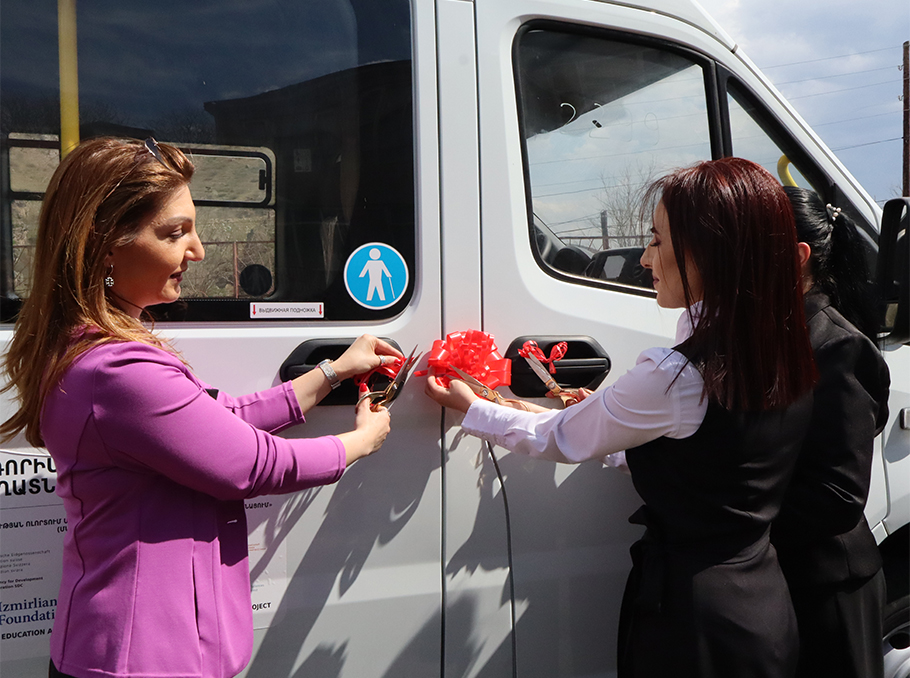
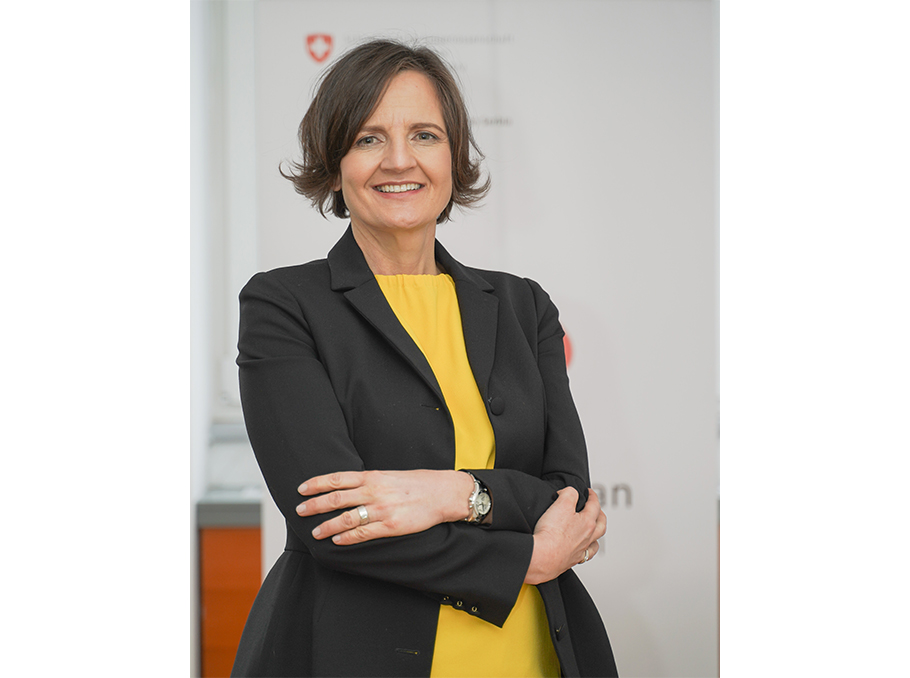
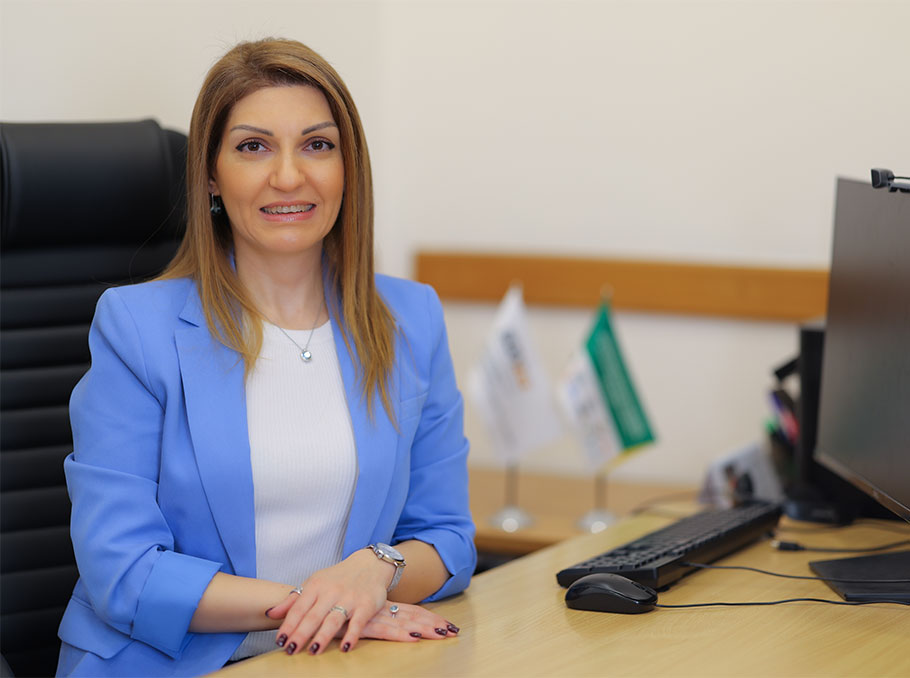

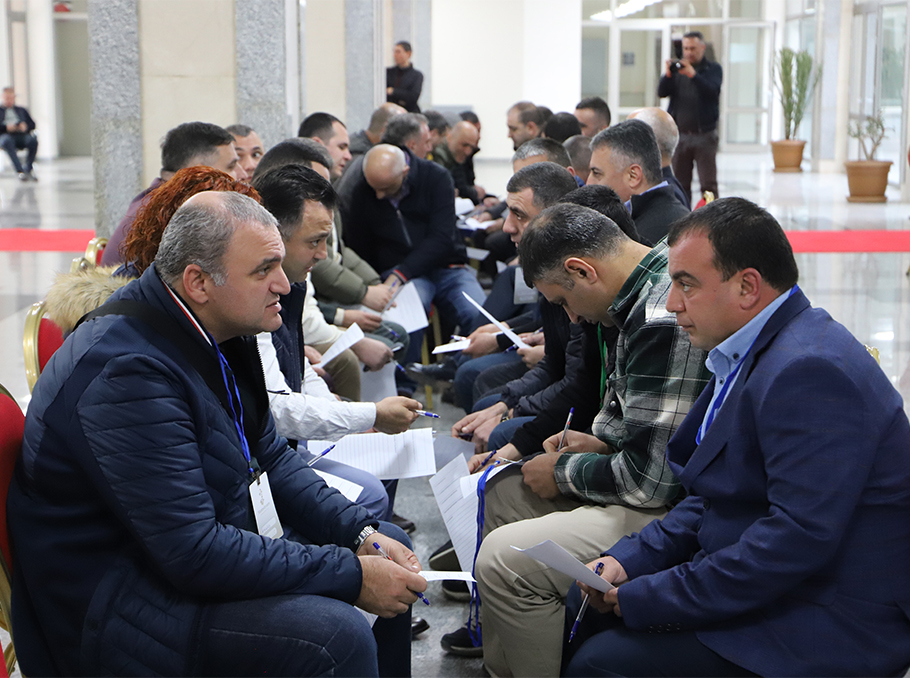
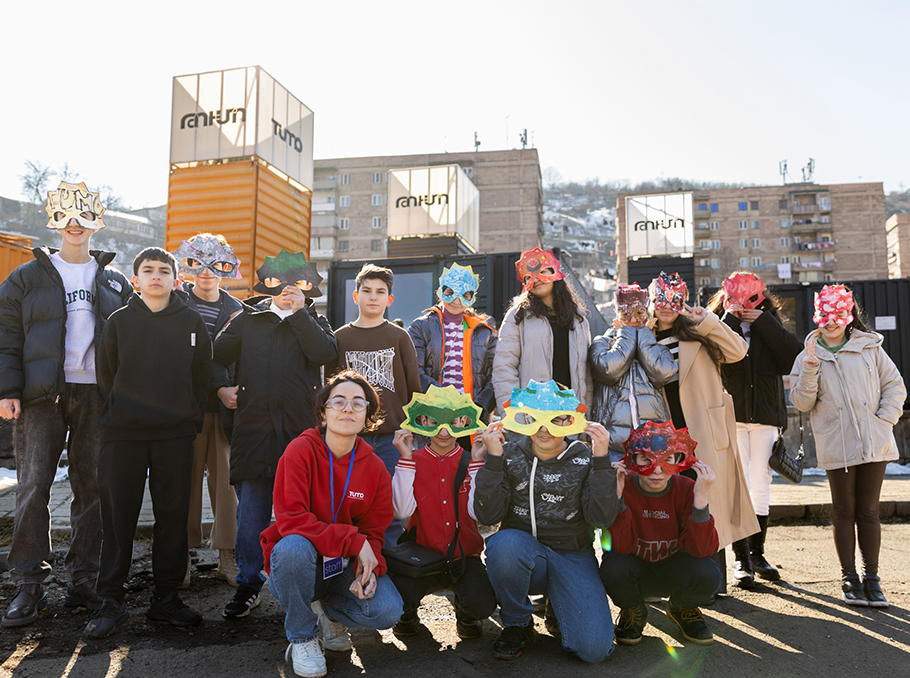
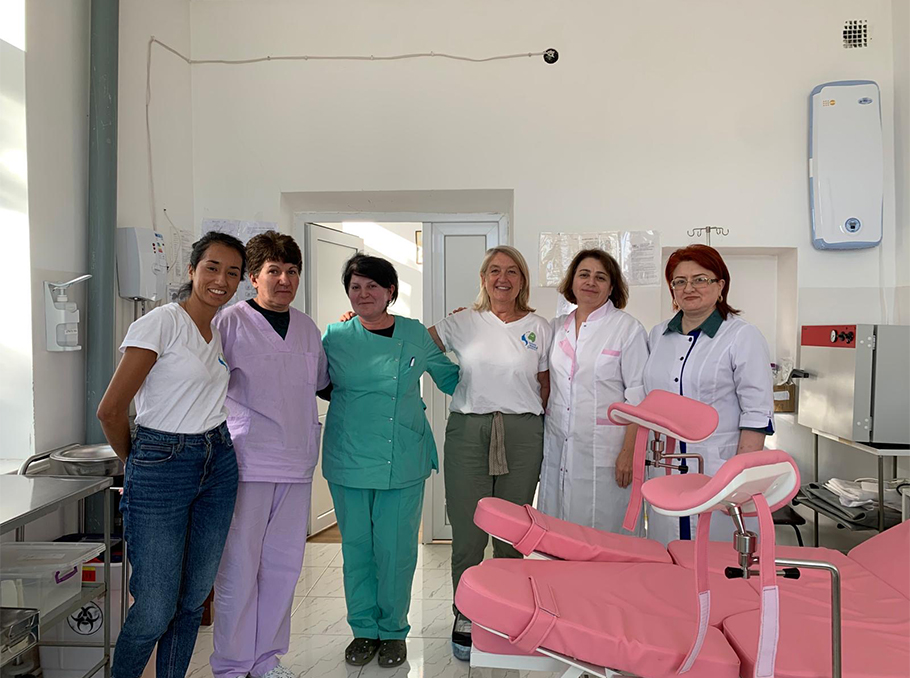
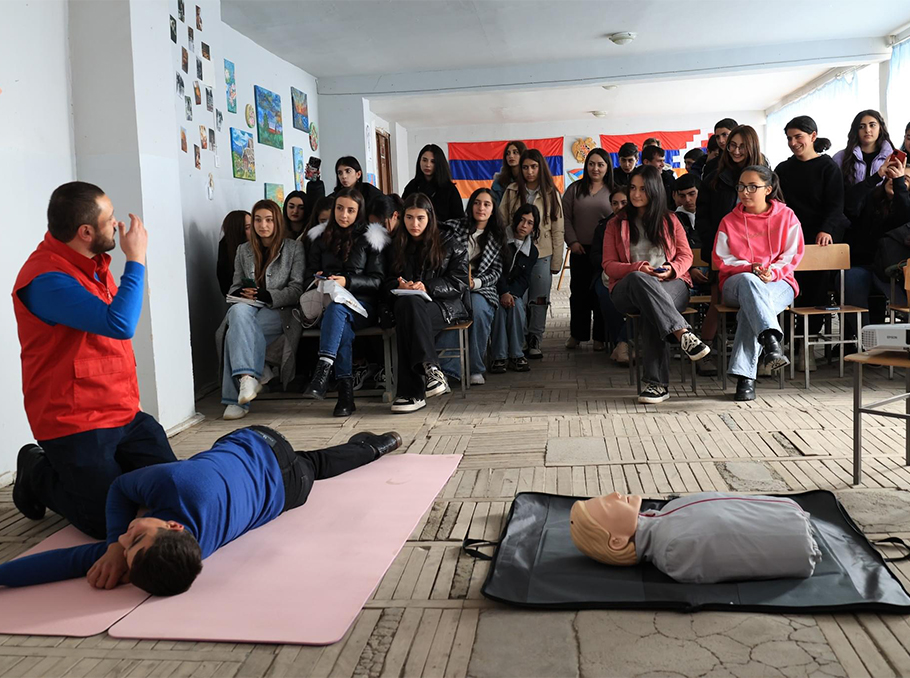







Comments
Dear visitors, You can place your opinion on the material using your Facebook account. Please, be polite and follow our simple rules: you are not allowed to make off - topic comments, place advertisements, use abusive and filthy language. The editorial staff reserves the right to moderate and delete comments in case of breach of the rules.